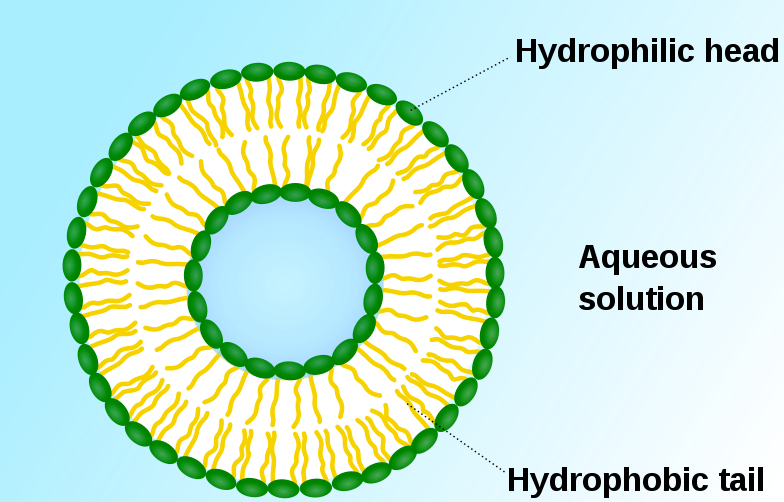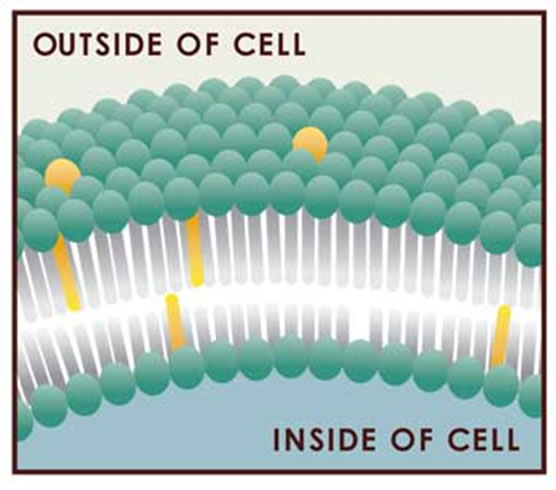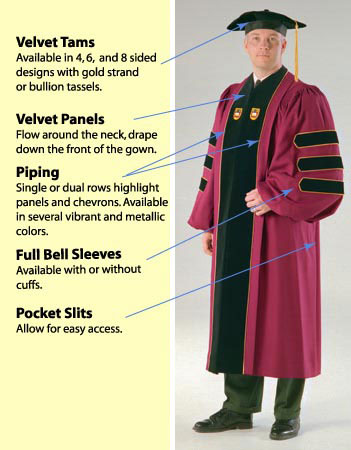النَّفْس: Nafs (Self)

لسان العرب
والعرب قد تجعل النَّفْس التي يكون بها التمييز نَفْسَيْن،
وذلك أَن النَّفْس قد تأْمره بالشيء وتنهى عنه
Lisan Al-Arab
Ibn Manzour
Arab calls an entity by which two things are discerned Al-Nafs, for example what inclines a man towards good as opposed to foul i.e. discerns between good and bad.
Remark 1: This Rahi (Author) considers “entity by which” as “structure” i.e. a similarity between objects (spaces) which does similar actions or has similar attributes or behaves similarly.
This structure of Nafs is ubiquitous within every human being, quite similar in operations and attributes regardless of the person’s race or culture or religion.
This structure of Nafs is not limited to discernment between good and evil, but discerning between one’s own Self and others i.e. knowing cognizing that I am not you and you are not me; this discernment is exclusively possible by the instrumentation of this fantastic structure of Nafs. Else we could not find each other as different beings, as winds and eddies have no firm boundaries, as we were in the realm of Spirits wherein we could not be told apart.
Allah innovated most novel innovation called Nafs, a structure (similarity) endued in every human being, so otherwise entangled wind-like spirits could be discerned in the life on this planet:
Wa (Emergent) Nafs (Self) and how (amazingly) she was Sawwa (Engineered to Perfection)
وَنَفْسٍ وَمَا سَوَّاهَا
Structured for the purpose of discernment:
91:8 and how she (Nafs) was imbued with moral failings as well as with piety!
فَأَلْهَمَهَا فُجُورَهَا وَتَقْوَاهَا
This structure much larger than our cosmos! What we feel of our Nafs (Self) is a tiny fragment of the whole structure.
In Qidam (Infinitely Past) we all were like unto eddies or currents namely spirits, those who loved one another intertwined versus disliked and repelled, and yet therein I could not say “I” and you could not say “you”.
Model
Nafs could be modeled as a Capsule, discerning two regions namely interior vs. exterior.
Inside this Capsule placed your person, outside placed other than you.
33:37. And what you (Muhammad) concealed within your Nafs (Self)
وَتُخْفِي فِي نَفْسِكَ
7:205. And remember your Lord within your Nafs (Self)
وَاذْكُر رَّبَّكَ فِي نَفْسِكَ
20:67 and in his Nafs (Self) Moses became apprehensive.
فَأَوْجَسَ فِي نَفْسِهِ خِيفَةً مُّوسَى
This model extends to Allah as well having a Nafs (Self):
5:116. You know all that is within my (Jesus) Nafs (Self), whereas I know not what is in Your (Allah’s) Nafs(Self).
تَعْلَمُ مَا فِي نَفْسِي وَلاَ أَعْلَمُ مَا فِي نَفْسِكَ
Furthermore the above verses indicate that this Nafs (Self) encapsulates to conceal as well. Therefore the said Capsule of Nafs (Self) has multiple purposes or you might say components.
Components
This Rahi (Author) ensembles the different derivations of the same word to render images and to form feelings within the modern English reader as were conjured within the ancient Arab when such words as Nafs were uttered.
Discernment
التمييز
Discerning between two entities.
With
عِنْد
To have something with one’s Self e.g. within my Self (Nafs) find many questions, I have no knowledge what is with Allah (Allah’s Self Nafs).
5:116. You know all that is within my (Jesus) Nafs (Self), whereas I know not what is in Your (Allah( Nafs(Self).
تَعْلَمُ مَا فِي نَفْسِي وَلاَ أَعْلَمُ مَا فِي نَفْسِكَ
Individuation
الانفرادية
An entity individuates by means of becoming extraordinary priceless and perfected. Allah did not individuate these Selves as discernible entities unless they are, each, in most perfect and distinctly exotic forms.
لسان العرب
هو من المُنافَسَة الرغبة في الشيء والانفرادية، وهو من الشيء النَّفِيسِ الجيد في نوعه
Begotten
المَنْفُوس
There is no Nafs (Individuated Self) that is begotten (Manfus) except her place in Garden and Fire is pre-written, said the Prophet peace be upon him.
لسان العرب
والمَنْفُوس: المولود. وفي الحديث: ما من نَفْسٍ مَنْفُوسَةٍ إِلا وقد كُتِبَ مكانها من الجنة والنار،
ثعلب: نُفِسَتْ ولداً على فعل المفعول. وورِثَ فلان هذا المالَ في بطن أُمه قبل أَن يُنْفَس أَي يولد.
Begotten as in born from another another Nafs (Self) while maintaining the connection:
لسان العرب
، قال: وسميت النَّفْسُ نَفْساً لتولّد النَّفَسِ منها واتصاله بها،
This opens horizons for new thoughts:
Nafs (Self) as a complex multi-cellular structure which encapsulates and She begets and begotten.
Gender
Nafs gendered as female for the said structure that discerns between two entities, Nafs gendered as male to indicate human being or group of humans:
لسان العرب
وقالوا ثلاثة أَنْفُس يُذكِّرونه لأَن النَّفْس عندهم إنسان فهم يريدون به الإِنسان،
In the language of Arab the nouns and verbs are gendered i.e. shortest form of a noun or a verb is called Male and the Female the longer form of the noun or verb with suffix of Ta-Ha
ة
or Ha
ها
Remark 2:This terminology of male vs. female noun and verb configurations have nothing to with sexual organ nor reproductive physiology. It does not indicate power and authority in case of male and weakness and inferiority in case of female (as propagated by the Arab male).
Shortest form in terms of number of letters is male gendered, and longer forms female.
So Ruh (Soul, Spirit) is Male gendered and annexed to it the Nafs (Self) for discernment which is gendered as female, since it is the longer form due to the annexation. See Also:
http://www.untiredwithloving.org/kashani_3_5.html
However if Nafs is male gendered then it refers to human being.
Nearby Respiration
النَّفَس
التَّنَفُّس
Imagine being in a dark room, Nafas (Respiration) of another Nafs is felt while she could not be seen, yet we sense the breathing and we feel she is there quite close.
If applied to Allah indicates removal of hardship by means of the Nearness of Allah’s Divine Nafs (Self).
لسان العرب
وقوله في الحديث: بُعِثْتُ في نَفَس الساعة أَي بُعِثْتُ وقد حان قيامُها وقَرُبَ إِلا أَن اللَّه أَخرها قليلاً فبعثني في ذلك النَّفَس، وأَطلق النَّفَس على القرب، وقيل: معناه أَنه جعل للساعة نَفَساً كَنَفَس الإِنسان، أَراد: إِني بعثت في وقت قريب منها، أَحُس فيه بنَفَسِها كما يَحُس بنَفَس الإِنسان إذا قرب منه، يعني بعثت في وقتٍ بانَتْ أَشراطُها فيه وظهرت علاماتها؛ ويروى: في نَسَمِ الساعة، وسيأْتي ذكره والمُتَنَفِّس: ذو النَّفَس.
From this terminology came Nafas Rahmani or Rahman’s Respiration which indicates wind-like or something flow-like on this planet that removes the hardship from people and provides them with relief.
لسان العرب
والنَّفَس: الفَرَج من الكرب. وفي الحديث: لا تسبُّوا الريح فإِنها من نَفَس الرحمن، يريد أَنه بها يُفرِّج الكربَ ويُنشِئ السحابَ ويَنشر الغيث ويُذْهب الجدبَ، وقيل: معناه أَي مما يوسع بها على الناس، وفي الحديث: أَنه، صلى اللَّه عليه وسلم، قال: أَجد نَفَس ربكم من قِبَلِ اليمن، وفي رواية: أَجد نَفَس الرحمن؛ يقال إِنه عنى بذلك الأَنصار لأَن اللَّه عز وجل نَفَّس الكربَ عن المؤمنين بهم، وهم يَمانُونَ لأَنهم من الأَزد، ونَصَرهم بهم وأَيدهم برجالهم، وهو مستعار من نَفَس الهواء الذي يَرُده التَّنَفُّس إِلى الجوف فيبرد من حرارته ويُعَدِّلُها، أَو من نَفَس الريح الذي يَتَنَسَّمُه فيَسْتَرْوِح إِليه، أَو من نفَس الروضة وهو طِيب روائحها فينفرج به عنه،
Ishara (Vectorial Pointing)
Molecular Self(Membrane Capsule): Liposome
A liposome is an artificially-prepared spherical vesicle composed of a lamellar phase lipid bilayer. The liposome can be used as a vehicle for administration of nutrients and pharmaceutical drugs.
A liposome encapsulates a region of aqueous solution inside a hydrophobic membrane; dissolved hydrophilic solutes cannot readily pass through the lipids. Hydrophobic chemicals can be dissolved into the membrane, and in this way liposome can carry both hydrophobic molecules and hydrophilic molecules. To deliver the molecules to sites of action, the lipid bilayer can fuse with other bilayers such as the cell membrane, thus delivering the liposome contents. By making liposomes in a solution of DNA or drugs (which would normally be unable to diffuse through the membrane) they can be (indiscriminately) delivered past the lipid bilayer. A liposome does not necessarily have lipophobic contents, such as water, although it usually does.

Clear partition of interior vs. exterior:

Impromptu
Q: Are there any examples of entities without Self?
A:
Electrons
Many Physics experiments fail to identify the individual electrons i.e. there is no way to fix one electron and tell it apart from all other. In cases that is possible the original system ceases. Therefore there is indication that Electrons might not have the concept of the Self as we do and understand.
Clouds
Clouds are incredibly large entities teeming with microbial life and operations. It is now suspected that these microbial forms operate as a collective to cause rain or snow or hail, or to stop such nucleation of the water vapor, while they transport themselves to the crust of the earth and ride upwards back to the cloud.
This life-form of the Cloud stretches many thousands of kilometers and yet difficult to say where it starts and where it ends, what is a sub-part, which part is this cloud and which part is another cloud.
This Rahi (Author) calls these clouds as Dis-Organisms!
Organism is compact with well-known boundaries of its being, Dis-Organism is as alive though non-compact i.e. has no discernible boundaries for being.
Therefore we model clouds as Dis-Orgnismans without Nafs (Self).
© 2016-2002, Dara O Shayda




